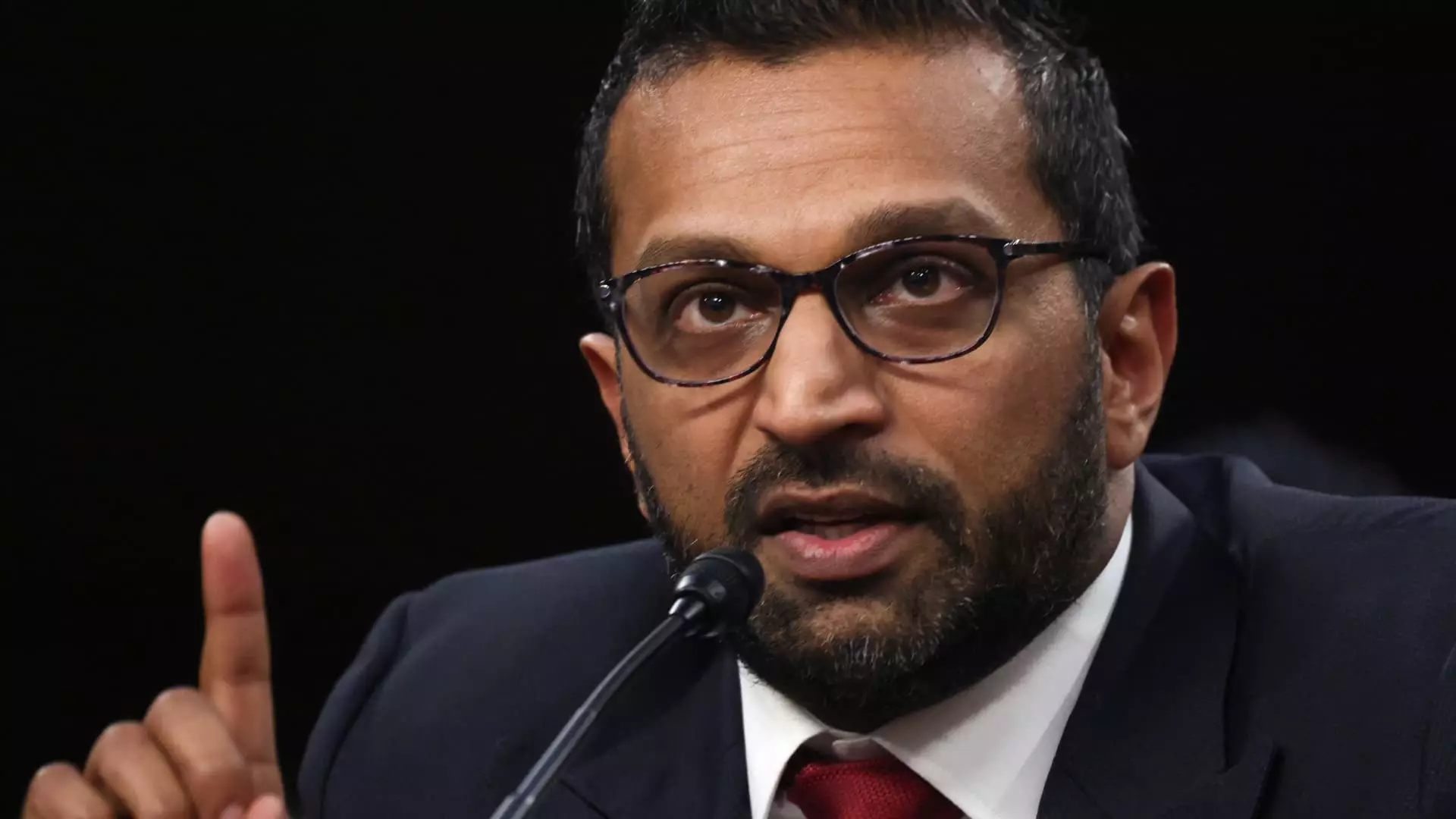In a significant and unprecedented development within the United States Justice Department, Kash Patel—recently confirmed as the FBI director—is poised to take over the responsibilities of the Bureau of Alcohol, Tobacco, Firearms and Explosives (ATF). This arrangement, which would make Patel an acting head of two major agencies, positions him at the center of a complex web of regulatory and enforcement issues, particularly concerning firearms. Such a move has far-reaching implications, raising concerns among various stakeholders regarding the future trajectory of both agencies.
Kash Patel, a steadfast ally of former President Donald Trump, officially stepped into his role as FBI director following a contentious Senate vote, demonstrating the partisan dynamics at play. His confirmation faced skepticism from Democrats due to his reputation and proposed reforms, which aim to fundamentally reshape the FBI. These criticisms underscore an ongoing national dialogue surrounding law enforcement’s role and its politicization—issues that are amplified by Patel’s new responsibilities at the ATF.
With Patel likely to be sworn in as the acting head of the ATF shortly, observers are closely watching how this dual leadership could influence both organizations. The ATF, a pivotal agency charged with a range of duties related to firearms and explosives, employs approximately 5,500 personnel. Among its many responsibilities, the agency oversees federal firearm dealer licensing, engages in tracing firearms used in crimes, and carries out investigative analysis related to gun violence. The convergence of these two leadership roles under Patel’s oversight raises questions about potential conflicts of interest and the operational focus of the agencies.
The ATF has long been a focal point of tension between varying political ideologies, especially concerning gun control. Conservative factions have consistently criticized the agency, arguing that its existence is an infringement on the Second Amendment. The decision to elevate Patel, especially in light of recent personnel changes—such as the dismissal of chief counsel Pamela Hicks—signals a potential shift in the agency’s operational ethos. Hicks, a veteran attorney within the agency, was ousted under allegations that the ATF was unfairly targeting gun owners, a claim that resonates strongly with conservative viewpoints.
The backdrop of this leadership change is a landscape that has already seen significant actions under the Biden administration concerning gun regulations. New measures aimed at controlling “ghost guns” and enhancing background checks for firearms transfers mark an approach that has drawn ire from pro-gun advocates. Given Patel’s connections and ideological alignment with conservative gun rights groups, the potential for an ATF that aligns with these views grows.
Patel’s anticipated ascendance to a dual leadership role has elicited polarized responses from gun rights groups and those advocating for gun control. Organizations such as Gun Owners of America have heralded Patel’s confirmation to the FBI as a substantial victory, suggesting it portends a more favorable climate for gun owners’ rights. Conversely, gun safety organizations have expressed alarm, labeling Patel a “known gun rights extremist” who could hinder future gun control efforts and compromise public safety.
The divide characterizing this situation is indicative of a broader national discourse regarding the regulation of firearms and the enforcement of laws tied to gun ownership. As Patel navigates this complex landscape, his actions and policies could either mitigate tensions within the gun control debate or exacerbate them, further polarizing an already divided public.
The historical context of leadership roles within the ATF reveals that significant changes have been rare in recent years. Prior to the tenure of Patel and the recent leadership shakeup, the then-acting director, Steve Dettelbach, served as the first confirmed director for nearly half a decade, reflecting political challenges that have impeded the confirmation process for nominees of both parties. This trend suggests that the ATF, under Patel’s leadership, may face a challenging path forward, potentially requiring it to grapple with internal reformation amidst external scrutiny.
Kash Patel’s impending role at the ATF is part of a much larger narrative about the interplay of law enforcement, regulation, and political ideology in America. As he operates at the intersection of two significant agencies, the implications of his leadership style, coupled with his political beliefs, may very well dictate the future of firearm regulations and enforcement in the United States. The coming weeks and months will undoubtedly reveal the impacts of this unprecedented arrangement.


Leave a Reply